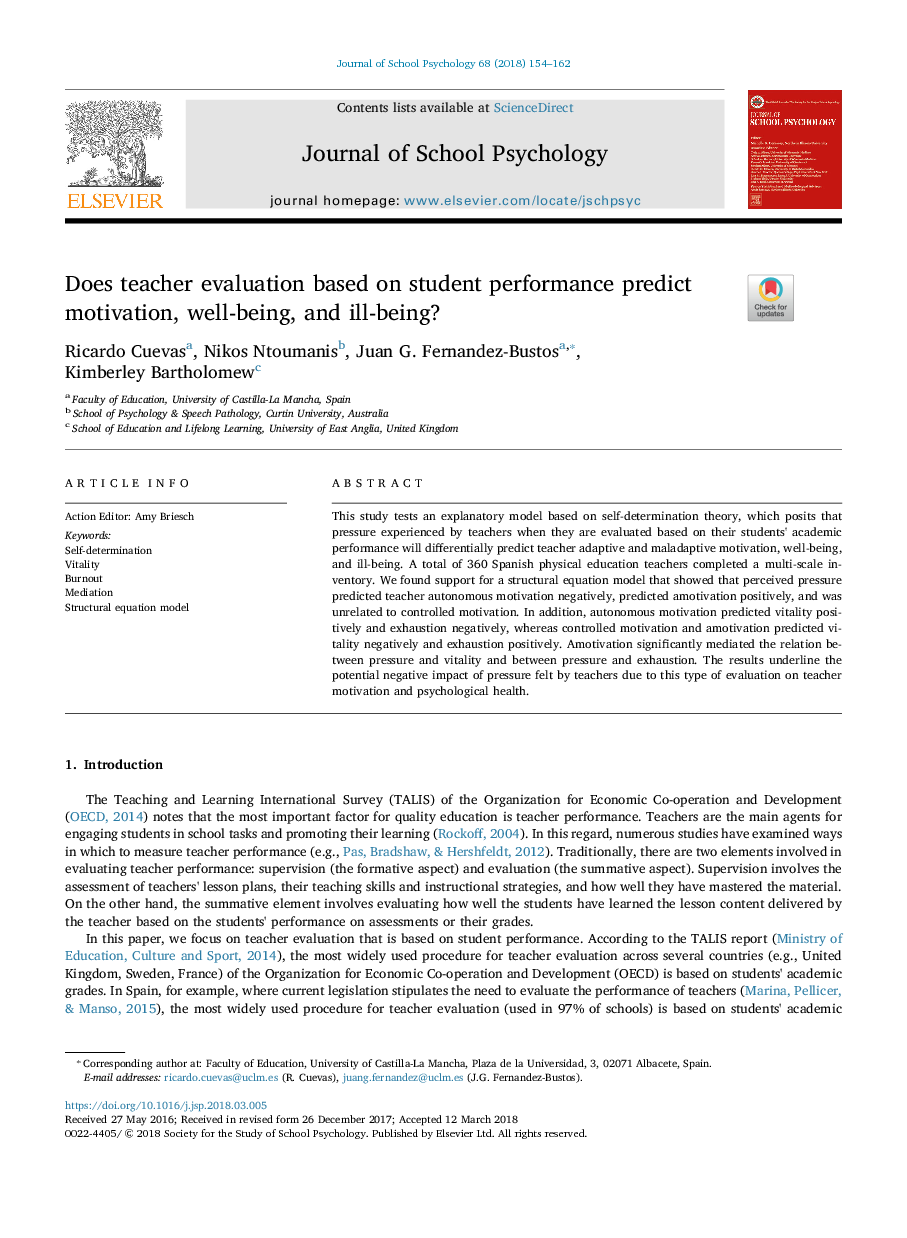ترجمه فارسی عنوان مقاله
آیا ارزیابی معلمان بر اساس عملکرد دانش آموزان انگیزه، رفاه و بدبختی را پیش بینی می کند؟
عنوان انگلیسی
Does teacher evaluation based on student performance predict motivation, well-being, and ill-being?
| کد مقاله | سال انتشار | تعداد صفحات مقاله انگلیسی |
|---|---|---|
| 121486 | 2018 | 9 صفحه PDF |
منبع

Publisher : Elsevier - Science Direct (الزویر - ساینس دایرکت)
Journal : Journal of School Psychology, Volume 68, June 2018, Pages 154-162
ترجمه کلمات کلیدی
تعیین خود، زنده گی، سوختن، واسطه مدل معادلات ساختاری،
کلمات کلیدی انگلیسی
Self-determination; Vitality; Burnout; Mediation; Structural equation model;
ترجمه چکیده
این مطالعه یک مدل توضیحی مبتنی بر نظریه خودتنظیمی را آزمایش می کند که معتقد است فشار تحت تاثیر معلمان هنگام ارزیابی بر اساس عملکرد تحصیلی دانش آموزان به طور متفاوتی پیش بینی انگیزه سازگار و ناکارآمد معلم، رفاه و بدبختی را پیش بینی می کند. مجموع 360 معلم تربیت بدنی اسپانیایی یک موجودیت چند طبقه ای را به اتمام رسانده است. ما حمایت از یک مدل معادلات ساختاری را نشان دادیم که نشان داد که فشار درک شده انگیزه خودمختار معلم را منفی می دانست، پیش بینی آموتاسیون مثبت و غیر مرتبط با انگیزش کنترل شده بود. علاوه بر این، انگیزه های خودمختار پیش بینی کننده مثبت بودن خستگی و خستگی منفی بود، در حالیکه انگیزش و تحرک کنترل منفی و منفی بودن را پیش بینی می کرد. آمبولیزاسیون به طور قابل توجهی باعث ارتباط بین فشار و شدت و میان فشار و خستگی شد. نتایج نشان می دهد که تاثیر منفی بالایی از فشار معلم به علت این نوع ارزیابی بر انگیزه معلمان و سلامت روان است.

